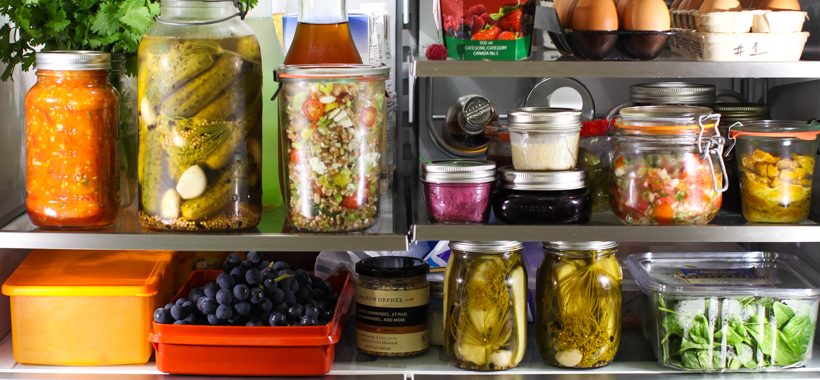As the weather heats up, your refrigerator has to work harder to keep things cold. An efficient refrigerator provides you with cold beverages and ice to help you stay cool during the summer. Proper refrigerator maintenance provides simple solutions to avoid odors, ensure reliability and keep your refrigerator running at optimum efficiency this summer.

Inside Your Refrigerator
The amount of food that you have inside your refrigerator does matter to its efficiency. An empty refrigerator doesn’t stay cool as easily as one that has the right amount of products inside, while a refrigerator that is too full won’t cool the contents as easily. If you need to fill some space in an empty fridge, try adding some bottles or pitchers of water. The cooled items inside will help the temperature remain constant after opening the door.
Summer may also bring out smells that are hidden in winter thanks to the additional condensation that occurs when hot air is cooled. Adding a simple carbon filter can help reduce old smells to make your ice as crisp and fresh as you would like it. Baking soda is also a popular and inexpensive way to combat smells inside the fridge and freezer. Modern no-frost fridges and freezers make it possible to skip the defrosting steps that were needed in the past. If you do own an older model, at minimum you should defrost your refrigerator before the summer months are in full swing. With older refrigerators, it is important to let your fridge totally defrost at least once a month, although some experts recommend completing a defrosting once a week.
Weekly Cleaning
Summertime heat can cause more bacteria in your refrigerator. You will definitely want to clean your fridge weekly to ensure your food is safe. You can use water and a mild, unscented soap followed by a solution of one teaspoon of chlorine bleach per gallon of water. The bleach solution will remove any germs left behind after washing the inside of the fridge with soap and water.
Your refrigerator should be kept between thirty-five and thirty-eight degrees to reduce germs and bacteria. Most bacteria are left behind after storing raw food, like meat. When the temperature is too warm, it allows the bacteria to grow more quickly than in a cooler temperature. If you find that your refrigerator is too warm, you will need to find the source of the problem.
When You Need Help
A refrigerator that isn’t cooling as well as it should isn’t always a sign that you have to buy a new model. You may simply need to perform some maintenance tasks to ensure everything is working to its best capacity. For example, cleaning the coils is a project that just takes a few moments. When coils get dusty or dirty, it can stop your refrigerator from cooling as efficiently as it could. You can also consider adding a thermometer inside your fridge to check the actual temperature. This can help you know whether you need to contact a professional appliance repair service to help you clean and repair your refrigerator.




 4819 NW 58th St Tamarac, FL 33319
4819 NW 58th St Tamarac, FL 33319